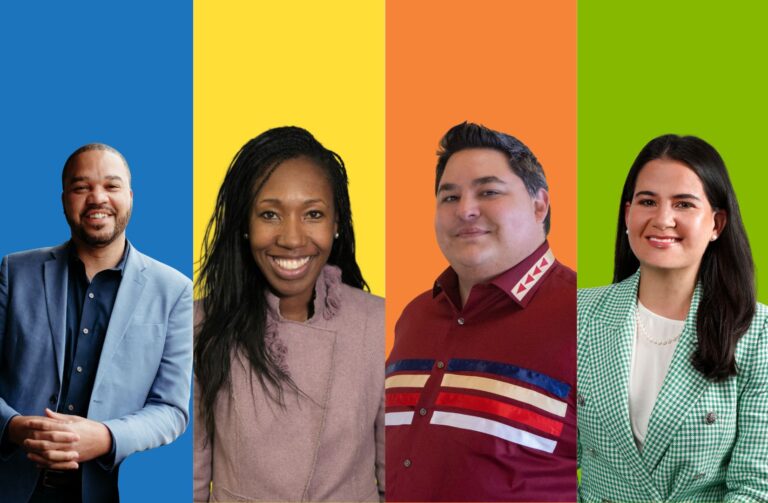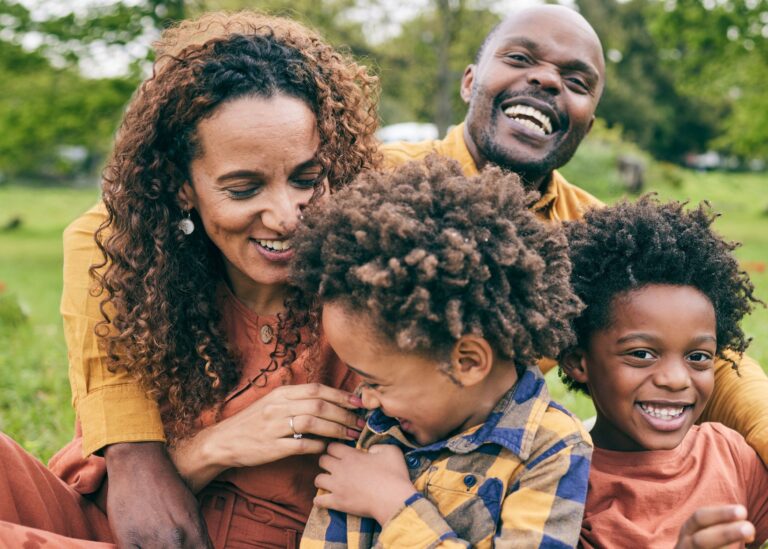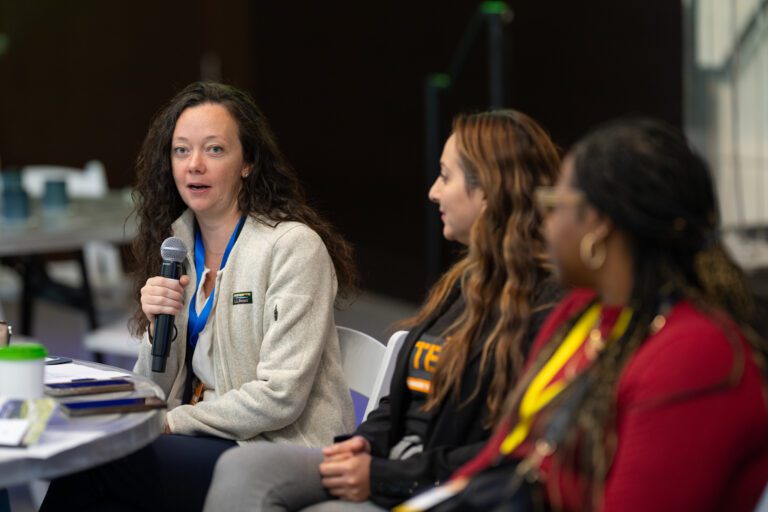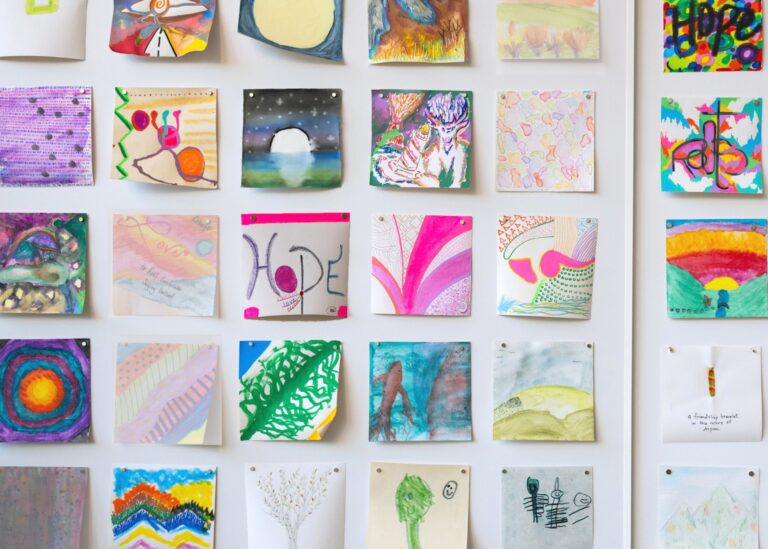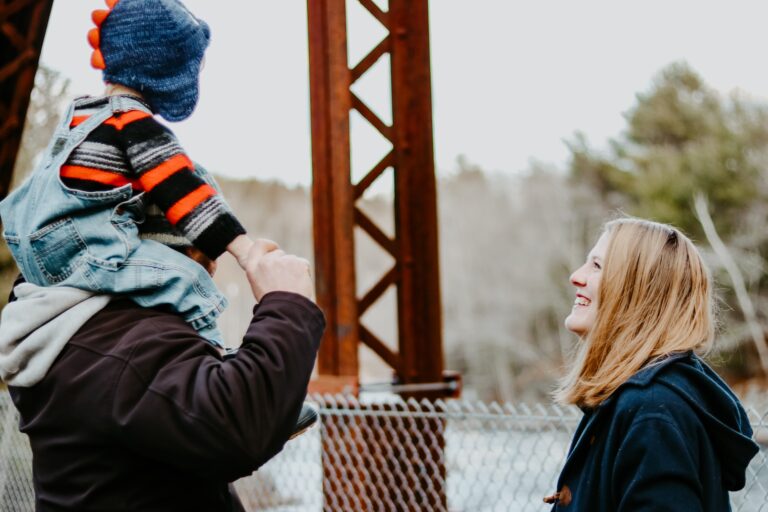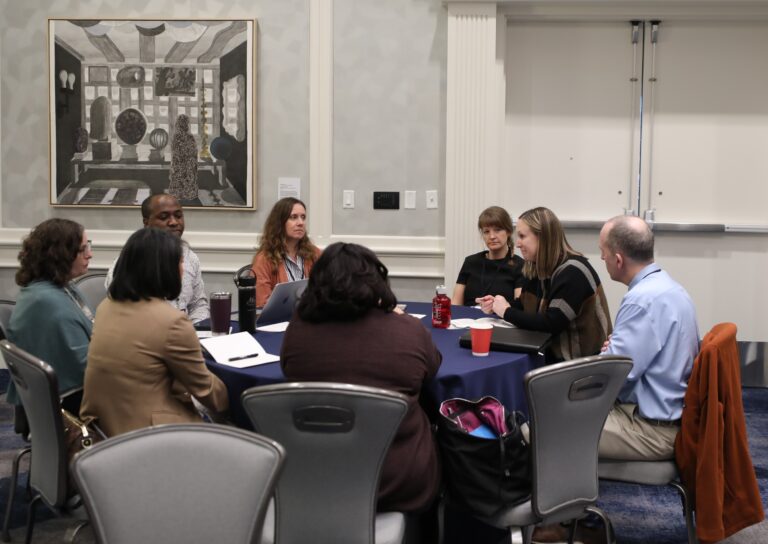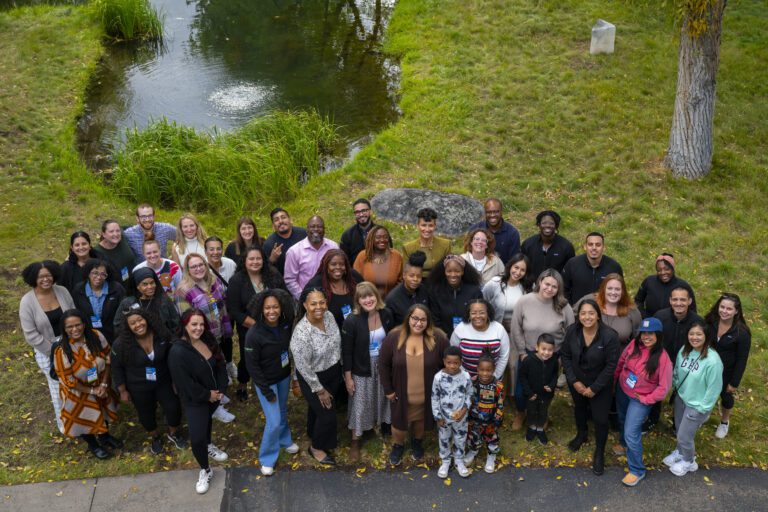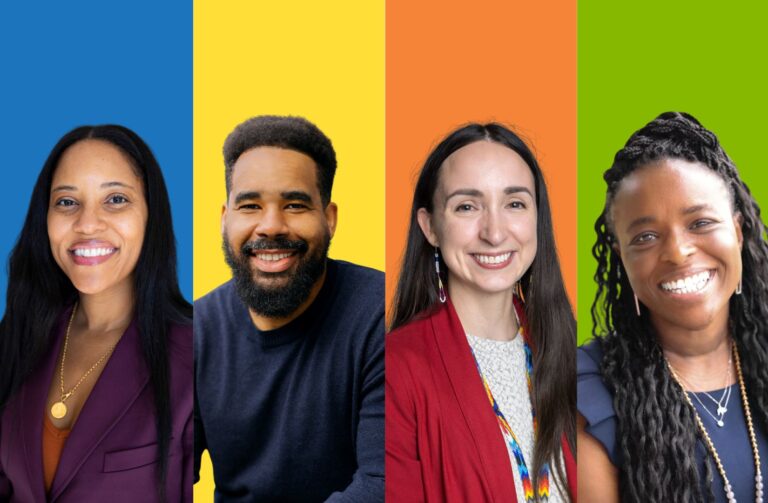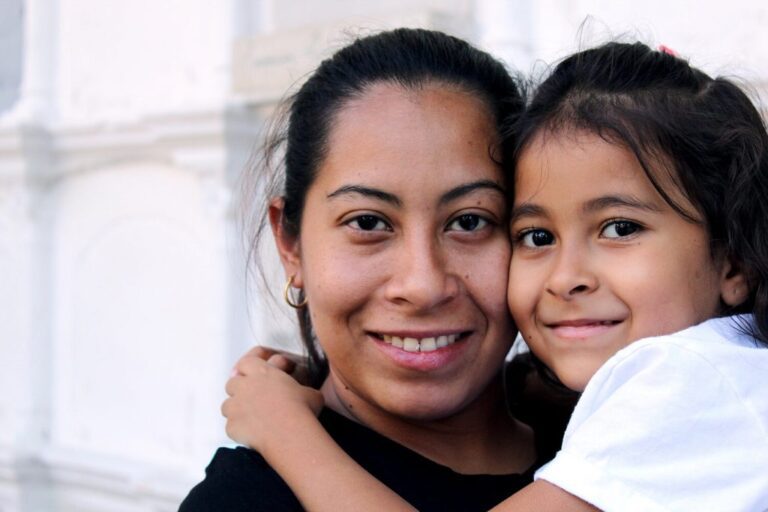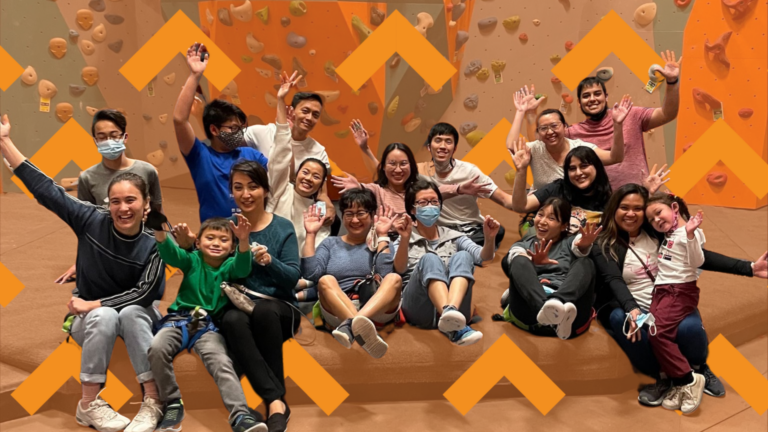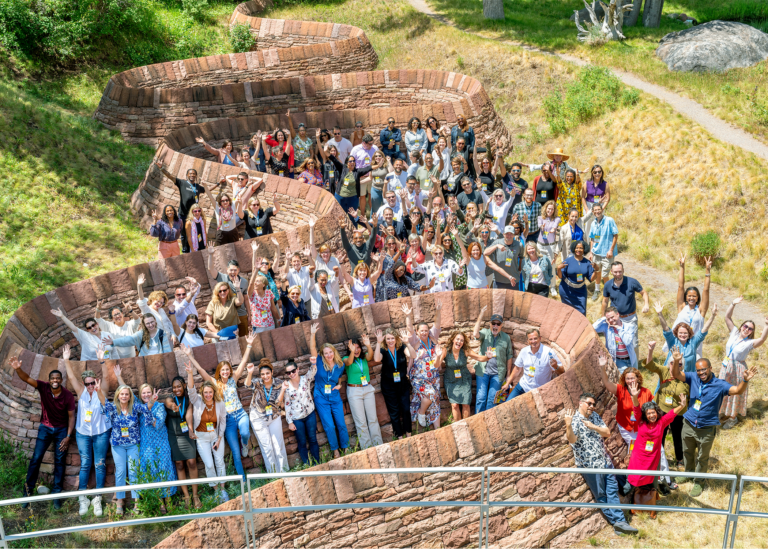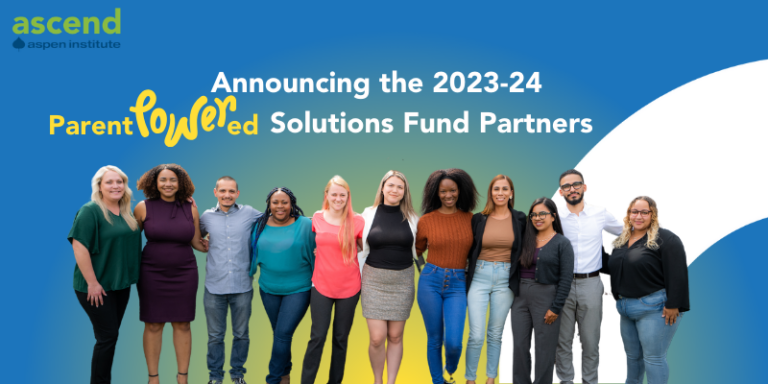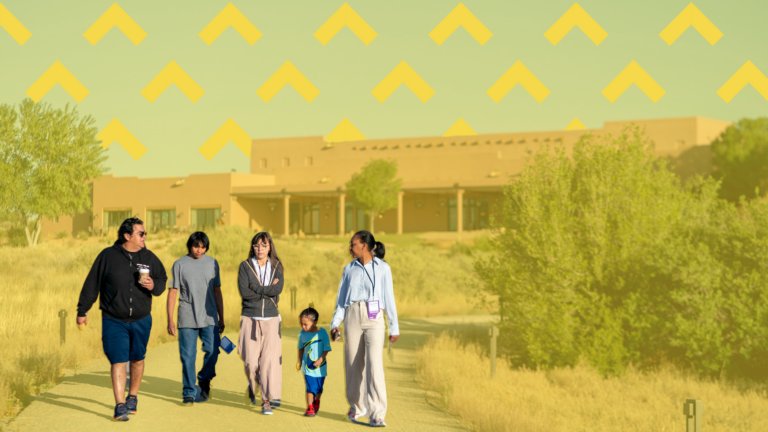Building Evidence Together for a Better Tomorrow
Aspen Institute Releases A New Shared Research Agenda Focused on Family Well-being with and for the Two-Generation (2Gen) Field
Washington, DC
Ascend at the Aspen Institute released the landmark Building Evidence Together For A Better Tomorrow report today as researchers, state and local administrators, practitioners, and federal officials and policymakers gather for the 22nd Research and Evaluation Conference on Self-Sufficiency (RECS) at the Capital Hilton in Washington, DC.
The well-being of children is inextricably linked to the well-being of the adults who care for them and the environments in which they live. Two-generation (2Gen) approaches build family well-being by intentionally and simultaneously working with children and the parent/adult caregiver(s) in their lives together, with the goal of creating a legacy of educational success, economic prosperity, and health and well-being that passes from one generation to the next.
“The 2Gen field is currently at an inflection point. We see 2Gen approaches proliferating across all 50 states as well as in Puerto Rico and here in the nation’s capital. We need to understand what is being implemented, who is being served, if those efforts are effective, and how those efforts might be improved upon. This requires thoughtful learning, evaluation, and research.” says Marjorie Sims, Managing Director of Ascend.
Building Evidence Together For A Better Tomorrow delineates a comprehensive set of 2Gen Learning, Evaluation, and Research guiding principles, agenda, and recommendations resulting from a 16-month, national collaboration among 42 researchers, funders, practitioners, and, crucially, parents. With support from the Conrad N. Hilton Foundation, Ascend convened these leaders – collectively called the 2Gen Building Evidence Learning and Action Community – eight times over 2022-2023.
Creating a space where parents’ voices were valued and heard just as much as PhD voices was essential. “As Ascend’s founder Anne Mosle always reminds us, change happens at the speed of relationships and trust. The work always starts with building close relationships,” Sims says. “Then having solid practices for engaging parents, providing fair compensation for their expertise, articulating the time and the goals, and creating spaces for them to connect with each other are important as well.”
For Mirah Marcus-Garcia, a Parent Advisor with Ascend’s 2Gen Building Evidence Learning and Action Community, the experience proved to be uplifting. “I enjoyed sharing space with the other parents involved because they put me in a greatness that I personally was struggling to see,” Marcus-Garcia says. “I also think and hope I helped change the negative stigmas surrounding Indigenous young parents.”
Building Evidence Together For A Better Tomorrow builds upon a dozen years of collaborations among Ascend and innovators across the 2Gen field:
- In 2012, Ascend published the Two Generations, One Future report making the modern case statement for the 2Gen field that honors lived expertise and centers equity with an intersectional lens.
- Our 2016 publication, Making Tomorrow Better Together: A Report of the Two-Generations Outcomes Working Group (MTBT1) is designed for 2Gen practitioners and details potential child, youth, adult, and family outcomes when taking a 2Gen approach. It also includes a sample theory of change, a sample logic model, a set of evaluation principles, and a glossary of evaluation terms.
- In 2017, Ascend complemented MTBT1 by releasing Making Tomorrow Better Together: A Guide to Outcomes for 2Gen Policymakers (MTBT2) as a resource for leaders seeking to align and coordinate large systems using a 2Gen approach. Making Tomorrow Better Together Better: Process Outcomes and Measures for 2Gen Organizational Change (MTBT3), is for organizations seeking performance indicators to track their progress and achievement of 2Gen change at the organizational level.
- In 2021, Ascend’s State of the Field: Two-Generation Approaches to Family Well-Being detailed numerous opportunities to elevate the 2Gen field’s capacity for using data, making continuous improvement, and strengthening evaluation and rapid-cycle learning strategies.
The full report can be read in full here:
###
Ascend at the Aspen Institute is a catalyst and convener for diverse leaders working across systems and sectors to build intergenerational family prosperity and well-being by intentionally focusing on children and the adults in their lives together. We believe in the power of co-creation. We are a community of leaders — well-connected, well-prepared, and well-positioned — building political will that transforms hearts, minds, policies, and practices.
The Aspen Institute is a global nonprofit organization whose purpose is to ignite human potential to build understanding and create new possibilities for a better world. Founded in 1949, the Institute drives change through dialogue, leadership, and action to help solve society’s greatest challenges. It is headquartered in Washington, DC and has a campus in Aspen, Colorado, as well as an international network of partners. For more information, visit aspeninstitute.org.
###
Contact:
Brendan Creamer
Communications Officer
Ascend at the Aspen Institute
brendan.creamer@aspeninstitute.org
Related Posts
